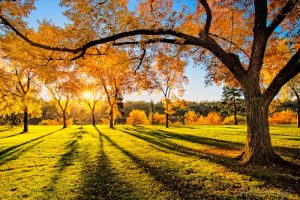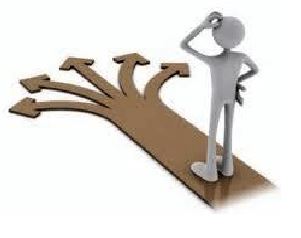We are experiencing on a planetary scale circumstances that those of us currently living on Earth have never experienced before. It is therefore obvious that we are asking ourselves many questions and finding few answers regarding what is happening.
In these reflections, my intention is not to speculate on the origin of this virus and what may be behind how it originated, but rather to look at what we can learn from this experience that we are all living, focusing attention on the resonances this awakens in each of us.
We know that the same fact can be lived in many ways. This makes sense, since experiences invite us to learn, and although we all learn from some things, others offer specific learning for each of us.
I will obviously not focus on the specific experiences that each person needs to learn, since this implies individual knowledge of each person. I want to focus our attention on some of the many things that we should all learn from this situation we are experiencing:
- Awareness of the limitation of the rational mind. Technological advances have contributed to feeding the ego. The mind often thinks that it can do everything, and it turns out that “all-powerful science” does not have the solution for facing and overcoming something so small that it is only visible under a microscope. This is a good lesson in humility for the rational mind. Will our rational mind know how to learn this lesson?
- Awareness of human fragility. We are so fragile that our way of being in this world can change unexpectedly and in an instant. This experience invites us to not seek safety in superfluous things, and in outdated structures that can collapse in the face of an unexpected storm. We need to recover perennial values, those which are timeless and always important in life and should never be lost, regardless of the evolutionary direction that society takes. Some of these values are: respect for life, oneself and the environment, including people and other animate and non-animate beings; love; fraternity; generous cooperation and solidarity; respect for freedom; the consciousness of being part of the planet and cosmos; respect for our own fragility and that of others, since the emergence of tenderness is the bridge that links us to the INFINITE, our origin.
- Revaluation of human relationships. Something important that we should also learn is to create more space in our lives to stop and look with trust, respect and love; to give a hug and say that we love each other; to simply have a coffee or tea together; to share a relaxed holiday lunch or dinner with plenty of time for conversation; to help each other when necessary; to go for a walk and be in nature, which is a reference of life and regeneration; to celebrate the great little things we achieve with our constant effort; and to be grateful for the great little gifts that life offers us every day.
These are just some of the many things we can learn from what we are having to experience, regardless of our economic and cultural circumstances, sex, age and other circumstances.
Everything that each of us can learn based on our personal situations is certainly no less important. Observe what is resonating with you during this confinement. What feelings are awakened? What thoughts? What fears? What reconsiderations? What other ways of seeing and valuing people and things?
 Ask yourself if you respect the natural life cycle in your daily life, the movement between activity and rest. This is already taught to us by the four seasons: autumn and winter lead us to dwell within and rest; spring and summer invite us to activity and celebration. To not forget this on a daily basis, we are reminded by the 24-hour cycle: dusk and night remind us of the importance of rest; dawn and day indicate the phase of activity.
Ask yourself if you respect the natural life cycle in your daily life, the movement between activity and rest. This is already taught to us by the four seasons: autumn and winter lead us to dwell within and rest; spring and summer invite us to activity and celebration. To not forget this on a daily basis, we are reminded by the 24-hour cycle: dusk and night remind us of the importance of rest; dawn and day indicate the phase of activity.
And to keep this in mind at every moment of our life, our heartbeat (systole = activity; diastole = rest), the rhythm of breathing (inspiration = activity; expiration = rest) and muscle tone (effort = activity; relaxation = rest) remind us continually.
Despite all of these warnings, humans have forgotten this law that regulates the natural processes of life, tending to glorify activity and not appreciate recollection and receptive silence.
This forgetting affects us both individually and as a society. On an individual level, the alteration of this natural rhythm causes many health problems, such as stress, heart rate fluctuations, and unbalanced blood pressure, with consequences that are sometimes irreversible.
The natural rhythm of activity-rest is not respected in our society either. For example, leisure becomes another activity and is often also stressful. Grain-growing farmers sow all the land each year, instead of sowing half and letting the other half rest, as was the custom only a few decades ago. Excursions in nature often become a power challenge instead of an opportunity to meditate and learn the many things that nature offers us and that remind us of its natural rhythms.
This is how we have moved away from the natural rhythm of life, prioritizing production and entering a vicious circle of productivity and consumption. This vicious circle inevitably leads us to a dead end.
Where has this alteration of the natural rhythm taken us? To the alteration and worsening of health, both the health of individuals and of the planet.
Will we be able to reflect and learn from this experience that we are living? Will we have the decisiveness and courage to correct our wrong direction, and aligned with the laws that regulate the natural processes of life? Will we unite to embark on a path that leads us to the holistic health of individuals and of the planet that holds and sustains us?
I hope we will be able to learn the lesson, without requiring another similar situation for having failed this test.
Ramon V. Albareda
Theologian, Psychologist and Sexologist
Creator and consultant of ESTEL, Centre for Personal Growth and
School of Integral Studies
Co-creator of the Holistic Transformation approach
and one of its applications, Holistic Sexuality

